Hello and welcome to Episode 21 of What China Wants.
In 2004 Sam attended, as a guest, the Republican National Convention in New York. The overwhelming feeling was that we were at the centre of the international political world, with the only potential competitor the Democrat Convention that had happened the week before. It was America Supreme.
In 2022, it is possible to argue that the most important political gathering in the world is in China. The five-yearly National Party Congress that begins on 16 October is the most important event of the Communist Party, and, given China’s weight, has the potential to change the world.
To understand what we might expect, Stewart and Sam talk to a leading Chinese academic based in the UK, someone who has been studying the run up to the Party Congress. Jinghan Zeng is Professor of China and International Studies at Lancaster University and a specialist on the politics and international relations of China.
Some highlights from our discussion:
Stability is, and always has been, of primary importance to China. So the Party Congress is unlikely to do anything to knock this stability.
We don’t know who will be on the new Standing Committee (the top branch of the Chinese Communist Party), but whoever it is will be unlikely to do anything too abrupt in terms of policy change (such as removing the zero-COVD policy), at least not yet.
Where the impact of this Congress is important is in the mid to long term. The election of Xi Jinping led to a significant change in China’s trajectory but this wasn’t obvious for sometime after his first Congress.
Re: Taiwan, it is likely that there will be a repeat of Beijing’s desire to reunite peacefully with Taiwan, but how realistic this is remains to be seen.
You can also listen to the podcast on Apple, Amazon, or Spotify.
As always please do share, comment, and subscribe. We’ll be back next week with more What China Wants, reporting on the actual Congress itself, including a look at Xi Pinping’s speech.
Many thanks for listening.
***
Here is the transcript:
Sam Olsen: Hello, and welcome back to What China Wants with Sam Olsen and Stewart Patterson. Now, as many of you will know, we have got the Chinese Communist Party's National Congress coming up very soon – starting this weekend in fact.
In order to go through this, we're excited to say that we've been joined by an academic, based here in the UK, who is going to help us to underastand what we might expect to see.
Professor Jinghan Zeng is professor of China and International Studies at Lancaster University. He is also the Academic Director of China Engagement and Director of Lancaster University Confucius Institute. He was educated at the University of Warwick and the University of Pittsburgh, and has also written extensively on China and surrounding fields, for example, 'Artificial intelligence with Chinese Characteristics: national strategy, security and authoritarian governance'.
Stewart Paterson: Well, thanks very much indeed, for joining us, Jinghan. Perhaps I can just start off by asking you to remind our listeners what exactly the Congress is, and why it potentially assumes such importance for the next few years in terms of the direction China might take.
Jinghan Zeng: Well, I think this might not be something very familiar to the western audience, but the Congress is the most important event in China's political calendar. It stands for the National Congress of the Chinese Communist Party, and is, theoretically speaking, the highest body in the Chinese Communist Party.
The Congress is important because it is a public venue for top level leadership succession in the Chinese Communist Party. And it's important because of the formal events for changes to the Chinese Communist Party's constitution. So, during these gatherings, I think there will be top level Party positions being re-appointed, and that can be up to the Secretary General level - the highest job of China - which makes it very significant to Chinese politics.
SO: Okay, so one of the things that people have been talking about for the last few months is that there have been some structural preparations within China to get the country and to get the Party ready for this Congress. The most obvious example of that is the zero COVID strategy. To what degree has zero COVID and other related policymaking decisions been put in place to make the approach to the Congress a smoother ride, or are these completely separate decisions that have been made?
JZ: Right. So I think in terms of preparation, normally, a preparation committee will be created by the Politburo before the Congress and usually chaired by the General Secretary of the CCP, and this will be saying about the personnel changes. We're seeing the Chinese Communist Party prepare, for example, a list of candidates to be elected to the Central Committee and its bodies and from the top two different kinds of bodies. At the same time, there'll be a drafting committee, which will draft the work reports, and will create groups that might propose amendments, for example, if there are changes of the Constitution to be considered. Those are the normal kind of preparations made before Party Congress.
And just now you mentioned COVID. I think there are probably two separate processes here, because Party Congress is the most important event in China's political calendar. So what is very crucial to the Chinese Communist Party is social stability. And this is why I think it has been widely anticipated that before the Party Congress, there'll be no changes to China's zero COVID policy, because it anticipates that if you significantly change that strategy - you drop zero COVID - it might create considerable consequences for the stability. And stability is very key for China's Party Congress because it involves key personnel decisions, it involves leadership transition.
So this is why the COVID strategy is so important. But I wouldn't say that a COVID strategy is one of the preparation for the party congress. The COVID strategy is being set there, trying to maintain the status quo to some extent, and to secure a successful Party Congress. And after the party congress, there might be some discussion about potential changes to the COVID strategy.
SP: That's very interesting, because I wanted to ask you about that, and also other policies. So in the aftermath of the Congress, or even during it, should our listeners expect to see major policy announcements about the future? Is it a time when, you know, if there were to be big structural reforms to the Constitution or the military, for example, that they would be announced around the Congress time?
JZ: Well, I would say the most important thing, probably for this Party Congress, and what we have all been observing, is about the third term of the Chinese President Xi Jinping. And this is very, very crucial, obviously, for lots of reasons this is something so very important. At same time, obviously, a lot of investors are now trying to understand maybe more of the changes and to interpret what might happen to the key policy shift. As you mentioned, for example, whether there is an indication of the end to zero COVID policy, or there might be some easing of regulation and the further stimulus, or there might be some changes in other area.
Regarding military aspects, I would say what is more important for now is about who is being selected as a leader in the Chinese army. So it's about succession of the military leader for now. Then if there are going to be significant changes, we can see probably some of that happening later, but might not be at this stage, given what is happening now. I think, clearly a lot of focus on this Party Congress will be Xi Jinping's third term, and how to ensure stability in the current kind of zero COVID policies also will be the be the part which will attract most attention.
SO: Okay, thank you for that. So I suppose the reason I was asking about zero COVID strategy is that there have been comments in the press, especially in the West, saying that basically, Beijing is trying to put stability above economic growth, and that as soon as the Congress is over, they will be able to go back to focusing on economic growth, rather than being ] by the political requirements for trying to maintain stability. It sounds like from what you're just saying that the stability side is actually more of a strategic angle, rather than just being a tactical and operational thing for the Congress. But of course, things may change there, but it's not guaranteed that we're going to see a move towards having economic growth policies at the expense of political stability. Is that fair to say in the light of the last few months?
JZ: Well, I think there are several points I want to highlight regarding that question. First of all, social stability has always been something the Chinese Communist Party has been focused on, it is always a constant concern for decades. So you can go back to Hu Jintao's time, Jiang Zemin's time, Deng Xiaoping's time, always saying that social stability is everything, right. And they are trying to make a balance that's trying to make sure that economic growth serves the wider needs to maintain social stability, because sometimes economic growth can create a lot of disruptions to social stability, right.
So it's not a new thing, it's not only because of COVID, that they do the social stability. And we have to bear in mind that the COVID travel restrictions and COVID restriction policy do have a significant impact on economic growth. But it is not only happening in China, it's happening all across the world. So I think for the Chinese Communist Party here is really trying to find a balance in which to control the COVID infection at the same time, cause minimal disruptions to its economic growth, and this has been proved to be very challenging.
Which one is more of a priority? I don't think there is a clear kind of order from the top. I think we're always going to see, I think if you lie down, you will find that there are very different practices in different province regarding how to handle the COVID cases. In some places, in Shanghai, I think the way they approach it will be very different from places like Guizhou, like all the southwest. So I think then, what the central really give, we want both. We want you as a governor, as a mayor to make sure you can have control of the COVID situation in your place. At the same time, we want to see economic growth. So basically there will be both indicators happening there. And it's left to the local governors a lot more, to say which is more of their priority, and whether they are confident they can do both. And that mixed with a lot of things about the desire of society. For example, in Shanghai, you see a lot of social resistance or criticism towards a government approach handling that, because people expect a lot more from social and public services.
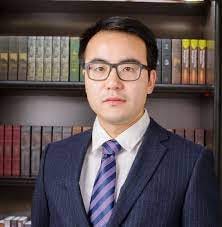
So I wouldn't say there is a one size fits all approach to arms stability, or economic growth. I think a lot of variation we have seen in China so far, has been caused by that original autonomy. And we have seen different kinds of models or different kinds of approach to dealing with this case. Some focus more on economic growth. Some of them, especially in the areas which are more remote, which are economically less developed, less international, you kind of say, more arbitrary kind of control, travel restriction kind of system. But in internationalised places, and more developed places, or in a way, a city more championing liberalism like Shanghai, it's a lot more difficult to do that. So, we should really develop a new understanding that China is a huge country, and it has different kinds of practice across the provinces.
SO: I think that's a nuance that's certainly lost by people that don't know China and just how big it is. I mean, we've all travelled widely in China, and when you go on the train for, you know, 1000 miles, and you just see human habitation the entire way, you realise there's an awful lot of people. It's a trite thing to say, perhaps, but the old adage that "the emperor is far away and the hills are high" I think that still applies to China today, right?
JZ: Yes, well, I think that's always the case. Bearing in mind because China is such a huge country. It's not only that kind of central-local relation, and the how the central can ensure the local comply is a problem that has been there for thousands of years. If you go back to Chinese dynasty, you'll find lots of examples of how the local have their own agenda, and try to selectively advance their own agenda. And so this is why today, I see a lot of media reports talk about Xi Jinping, pushing towards the centralisation or one person rules and trying to give that kind of perception that everything is in line with what central wants, or it's a highly centralised, authoritarian system in which the central can easily mobilise everybody together to advance one single goal. I think for China experts, we just don't see it like that. That central local relation will always be there, it's not possible to be eliminated. And it's always also a bargaining process between the central and local, given it's such a huge bureaucracy
SP: Jinghan, maybe now's a good time to pick up on something that you mentioned earlier, which is the importance of personnel and appointments at the Congress. And obviously, there's potentially a slightly different sort of bargaining process going on at the moment. Perhaps you could just inform our listeners as to the construction of the Standing Committee for the Politburo. I think I'm right in saying that we're likely to lose two members of that seven-man committee because of age, which will create potentially two spaces. Although I think I'm right in saying that there's actually no requirement for it to be a seven-man committee, it could be smaller or larger. And I suppose what people will be really keen to hear is, if various people become appointed, how should we interpret that in terms of Xi Jinping's grip on power, or the degree to which he is compromised with other factions in order to produce a more inclusive Standing Committee?
JZ: Right, so first of all, the Standing Committee is the top leadership of the Chinese Communist Party, it's where the important decisions are supposed to be made. And you're right that there is no specific fix of the numbers. It can be five members, it can be 11 members, but we have to bear in mind that it was only in the past few decades, it has become institutionalised. If you go back to Mao Zedong's time, you can find that not even Party Congress were organised on a regular basis.
So to understand that, you have to go to understand about Deng Xiaoping's effort in what we call Four Modernisations of the Chinese Communist Party's leadership succession, in which Deng Xiaoping wants to have more of the leaders which are younger, more educated, more professional, and more revolutionary. So he considered that as a project trying to really improve the quality of the Chinese leadership succession and make it sustainable. So what we just talked about, of a regular kind of Party Congress, its membership, who is doing what, and conceptualise the power in the Politburo Standing Committee, the Four Modernisations [goals first set forth by Deng, to strengthen the fields of agriculture, industry, defence, and science and technology in China] were kind of the starting point, or one of the early starting points of that institutionalised process, and that's very important to understand that.
And then we come to the question you asked, which a lot of people ask today, about the age limit, is there really an age limit? And if we go back to see that, this is why the Four Modernisations are so important. If you go back to the early 1980s, then that formalisation and the process only have term limits. This would mean for the top position, you should only have two terms as limits. This is why I think the challenge to term limits attracted so many attentions, and that clearly indicates about what might be happening next. But in that constitution, there's no written rule, saying about the age limits. And how the age limits has been implemented, often what we talk about is seven up eight down, right? That's what we call it in English, in Chinese it's qi-shang, ba-xia. So I think a lot is about informal norms, informal rules of how things are supposed to go. But there is no kind of written down kind of thing saying it has to be followed, or in certain ways, and this is why we see that things are slightly different in the past few years.
And how does that help us to understand Xi's power? I think, to me, what matters more, is less about the age, in the longer run, I mean, the age will be important, how young is the leadership or number of membership? I think what is more important, is to look into the age of specific Politburo Standing Committee members. And why? Because that might be signalling who might be the next successor, or, again, there'll be no successor at all. And I think this is very crucial to find out who is the youngest one there, and what is their career in the past? And who are they are close to? I think that signals a lot about what might be happening in the future power succession, and help us to answer your question of how to interpret about Xi's power, or the degree of power, or how Xi has been really negotiating or bargaining with different kinds of factions.
But again, as a China expert, I will be very cautious using the term 'faction', because again, it depends on how we define it. The line between different factions is very difficult, it's not very clear at all, and they do not necessarily advocate a fundamentally different policy agenda. Also, a lot of that information is not available to outside so we should be very careful. And there are lots of rumours now. If you go to Google it, you can find lots of rumours saying different kinds of versions of who will be selected, and who will be not. I would be very cautious to claim I have a crystal ball. But I think what might be clear will be you can see further consolidation of Xi's power. I think that direction of travel is clear. And again, then I think beyond that what I am interested in more will be who is the youngest one, and does that signal about anything of Xi's successor.
SO: Now, I know you can't look into the future. But of all the people that could join the Standing Committee and basically join the wider Politburo. Does anyone in the running signal the potential for big policy shift after the Congress? Or is basically everyone that's in the running, going to help to continue China along the path is on now?

JZ: Well, I think there are two things we should be very careful about. The first is talk of a radical policy change. I think there is a lot of interpretation saying after the end of the Party Congress, there'll be a radical U-turn policy shift, as we have seen in the UK about how the new Prime Minister has been dropping something that she introduced a few days ago. I don't think that will be the approach of the Chinese Communist Party. Even if we're going to see the move getting away from zero COVID, it's going to be an incremental process. So it will not be radically happening after the Party Congress. It will be gradually you will see the propaganda machine will be working, and trying to talk a bit more about how the virus might be changed and less harmful to the human body, there will be more efforts to push people to get the vaccine. And then it will be an incremental, gradual process, to ease the COVID restrictions, rather than a U-turn or suddenly abandoned the zero COVID policy. I don't think that will be the approach of the Chinese Communist Party and what they're going to do. I think it's always a gradual, incremental process.
And regarding about the person who were being selected, will that bring a significant policy shift? Again, I think when it comes to some technical areas, for example, if we say who is in charge of the New People's Bank, or in economic policy, you might see some policy shifts, which might carry significant implications for international investors, I think, yes you can see that. But when it comes to really the big policy changes, I don't think this is a conference to do that. There are several reasons. One is even if they are going to do that, it's not going to be happening, or it's not going to be transparent in this Congress. And second, now is not a time to do that.
Before Xi Jinping officially became the General Secretary, he was selected as a successor back then. And he's played a very safe card, a very risk free card, until he officially become the Secretary General of the Chinese Communist Party. I think that they should be always the approach. If Xi Jinping selected a new successor, and I think that will be highly likely and to be politically smart to stay that course, not to try to drive a significant policy shift at this stage. So what we are going to see, I think, in some areas, like economic area and other areas, we might see some changes which have significant implication for investment in China, but in ideological areas or foreign policy areas, I don't think we are going to see a major policy shift. And even if it is going to happen, it's going to happen in the past dependence way, and being a gradual, incremental way.
SP: Jinghan this might be simplistic, but one of the ways that I've seen the current leadership sort of couch, particularly in the investment community is that you have Premier Li as being a kind of champion for pro growth, pro market economic policies, and President Xi, and some of his followers have really been the core driver behind common prosperity and what a lot of people in the capital markets at least see as policies that have impacted the profitability of investing in China to be frank. Now after this Congress, Premier Li will be gone, I believe, is there any individual who we should be looking at as potentially being the champion of a more market reform-orientated policy? Or does such a person not really exist anymore in the top echelons of the party?
JZ: Well, I wouldn't say they will not exist at all, I think definitely there will be someone there to champion for market reform, because ultimately, that's what China wants, right? China needs to continue to reform, needs to further be integrated into the global economy, not vice versa, and needs to maintain good relations with key Western countries such as the United States, and the European Union. So all of this agenda will still be there. But it's very difficult now to say, who will go out to do that? I think a lot of those things actually happening behind the curtain, and I wouldn’t over-interpret about this split between Xi and Li actually. It is Xi Jinping’s interests actually to have a strong China's economic growth. So I think the outside might be over interpreting a bit of that division. I think economic growth is definitely an agenda that Xi Jinping wants to see success. But it's more about how this can be achieved on the condition of social stability.
So to answer your question, I think for now, it might be too early to interpret anything, and we might run into a mistake. If you go back to 2012, there was a lot of interpretation, saying that Xi Jinping might be the pro market reform kind of person because of his experience, as the governor of Fujian, and by then, Li Keqiang hadn't really being signalling a clear pro market approach. So I think we should avoid interpreting something, I think, especially for outsiders, or the Western actors, there are some things that you want to see. But we should be avoiding interpreting something into something you want to see, rather than reality, I think that's something we should bear in mind. The Chinese politics has always been a black box, and we should acknowledge that a lot of things wouldn't become clear until a few years later. We wouldn't know back in 2012, nobody really had been predicting back in 2012 that Xi Jinping would make so many changes, so many kind of transformations to China's Party system. So I think we should really be careful of making provisional kind of judgement, that this is a pro market, the person who will be fighting against another faction. I always have doubts on that kind of claims.
SO: Just looking at the time, I think we've got time for one more question. And it's one that certainly our listeners would want to know, given the weight of feedback we get when we do podcasts around it. But what does the Congress hold for China's relationship with Taiwan?
JZ: Okay, so I think on that topic, clearly, that's been generating a lot of attention, I think, especially in Western society, on how that might reflect in a future approach to Taiwan. And I will say, several things of my own interpretation. I think currently that the peaceful reunification between Mainland China and Taiwan are not off the table. There were lots of international analysis trying to focus too much on military side of how China will militarily deal with Taiwan and how we should be preparing for that, and preparing for China being next Russia and punish China. And I do find that unhelpful. If your goal is to avoid a military conflict, then I don't think it helps to label China as a threat, or try to push China into that direction. I think this there is a lot of self-fulfilling prophecy here. The more the West, trying to defend against China, tries to label China as a threat, the higher the possibility of something happening. And this is not in the interest of anyone.
Regarding this Party Congress, I think there will be the 'same old same old', how national integrity will be important to territorial integrity, national sovereignty will be important to all kinds of other things. I don't see anything new there. And they will also mention that China still wants to choose a peaceful way to work with the people in Taiwan for unification - but that we will not drop the military options. I think that will be standard Chinese foreign policy, I don't think there will be changes there.
But what will be really interesting to me, will be not on this Party Congress, but on the next five years of how to define Xi Jinping's legacy. And this matters, because ultimately it's about timing as well, right? If you think Xi Jinping now considers himself as a leader, which has a similar kind of status with Chairman Mao. And Chairman Mao has founded the People's Republic of China, as leader of a party with thousands of people into today's structure, so into millions. So that legacy is clearly there. For Xi Jinping what he wants to leave as his political legacy, that is something very interesting to see. And this is why a lot of things have been linking that unification with Taiwan can be something defining his historical status, can be his stamp on a Party, on the history. This is why this is important. And if that's the case, then we are going to see it's very interesting in how he's going to get that job done. I think that's the first thing. The second is the timing of getting that done. If it's not going to be done in five years' time, does this mean that it can justify another five years to get the job done? So I think those will be the things I find quite interesting to observe in the next few years, to see how things might develop in the issue regarding Taiwan. But I think in the next two or three years time, I don't think China is ready to deal with Taiwan through military options for now.
SO: We should definitely have another session on what Xi Jinping's legacy could be or should be. I think that would be really interesting to explore.
SP: Professor Zeng, thank you very much indeed for joining us on What China Wants. We'll be back next week with more.
SO: Thanks.
JZ: Thank you.






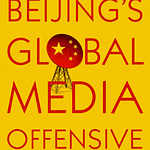
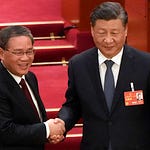
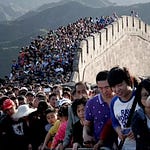
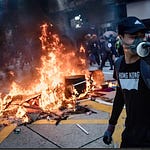


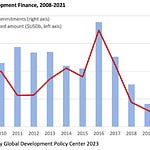
Share this post